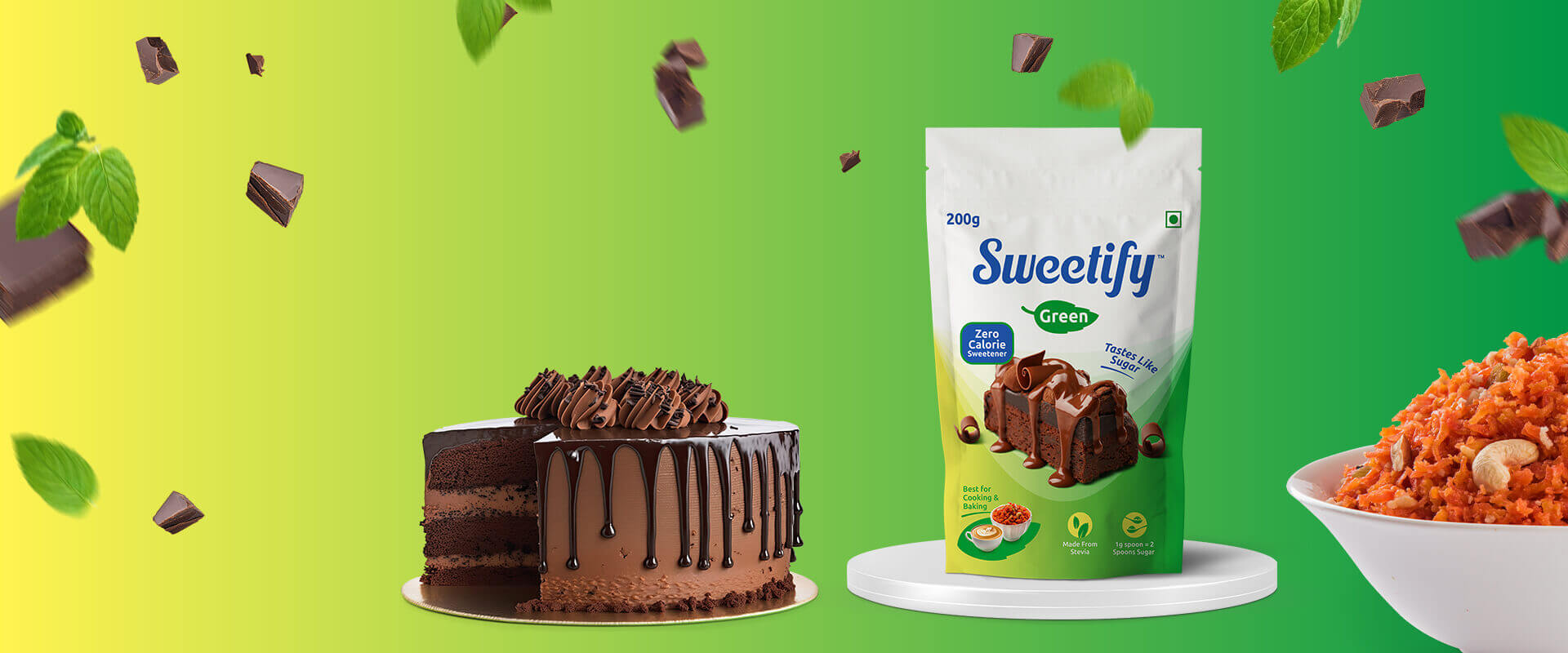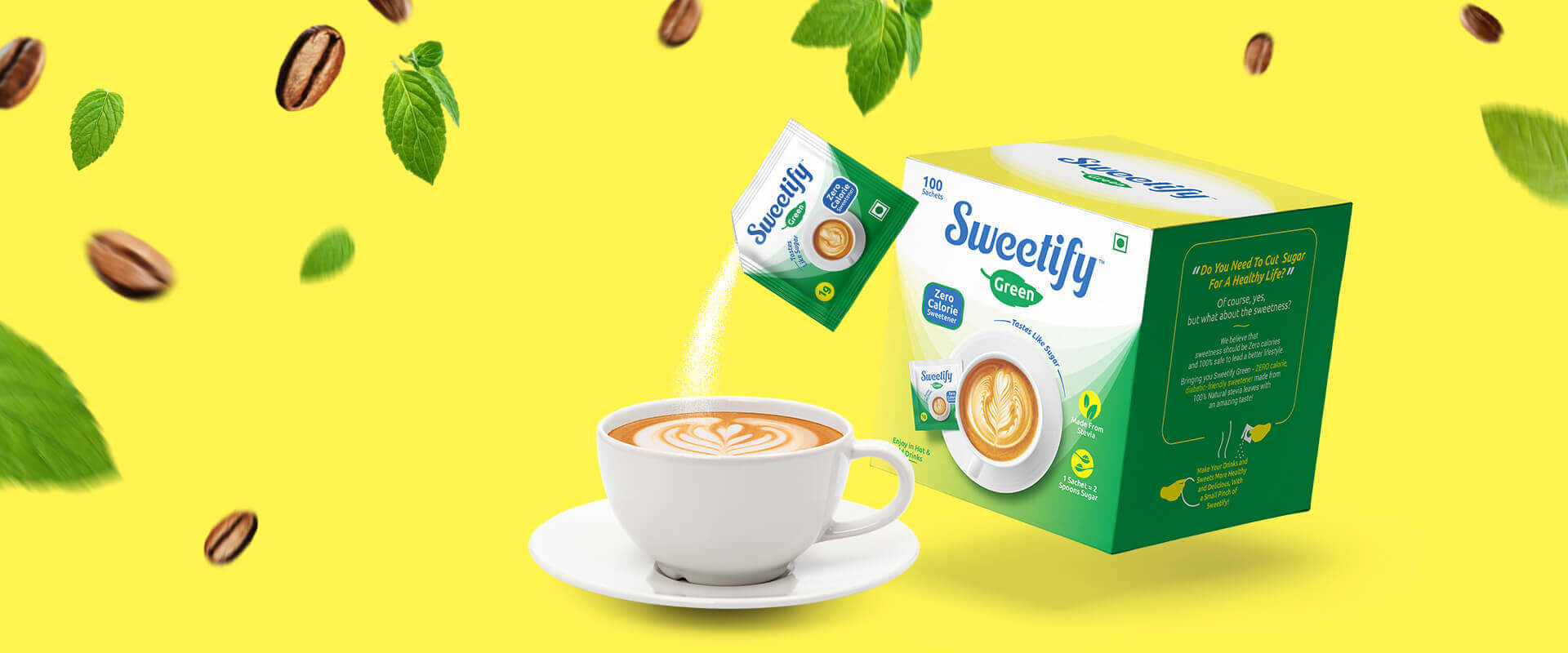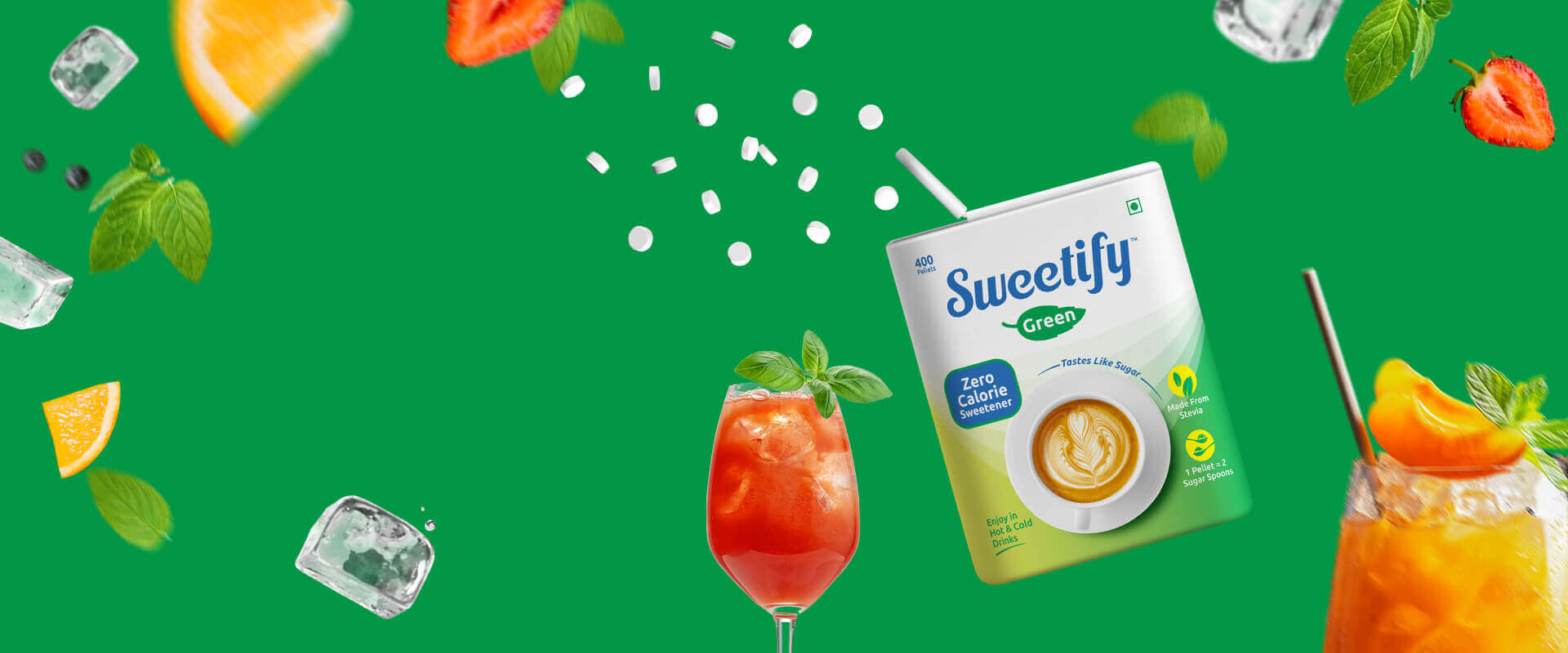The number of stevia myths roaming free in the streets is insane. With stevia being a source of harmless sweetness for ages, it is surprising that not many people understand it properly. So that is what we’ll do, we’ll take stevia myths and quash them.
The Truth about Stevia
Seeing the number of rumoured stevia dangers doing the rounds, we decided to confront & debunk them.
-
Stevia Myth #1: It is artificial.
Stevia is not at all artificial. In fact, it is also known as meethi tulsi in India. It is 200 to 300 times sweeter in comparison to sugar. It does have a bitter aftertaste but that can be eliminated. Leaves from the stevia rebaudiana plant are what we get the sweetness from. The leaves can also be directly eaten but they are too sweet and have a bitter aftertaste. Thus, the sweetness is taken from them and diluted while the bitterness is completely removed.
-
Stevia Myth #2: It is not diabetic-friendly.
Stevia can be used by diabetics as it has little to no effect on blood sugar and insulin production, making it a harmless sweetener. Since it can satisfy your sweet tooth without harming your body, it becomes one of the best options to replace sugar with.
-
Stevia Myth #3: It increases weight.
Stevia passes through your body without any effect and is thus a zero-calorie sweetener making you not gain weight as you consume it. Also, with stevia being much sweeter than sugar, only a small amount of stevia has to be taken to get the desired sweetness as compared to sugar. This means you can manage your calorie intake and as a result, your weight in a much better way.
-
Stevia Myth #4: It causes cavities.
Stevia does not cause tooth decay and as such reduces your need to go to scary dentists. Stevia is non-fermentable, meaning it does not feed the cavity-causing bacteria in your mouth. It may even help maintain your pearly whites and their overall health.
-
Stevia Myth #5: It is not safe to consume and causes cancer.
Stevia has been approved by regulatory authorities like US FDA across the world and no studies have found otherwise. It does not cause cancer and is safe to consume. The high-purity steviol glycosides in stevia will not become a cause of concern for you and your body, unlike sugar.
-
Stevia Myth #6: It is not easy to use.
Stevia can be used in a variety of ways. From your morning tea to your evening dessert, it can be used in halwas, cakes, shakes, and so many more dishes. It is extremely versatile and a much healthier option compared to sugar. With it being so easy to handle, it is even used in many sugar-free sweets, desserts, beverages, and all sorts of dishes both hot and cold without diminishing their deliciousness. It has become the go-to solution for all.
In our myth-busting tour above, we have gone through quite a few misconceptions people have about stevia. Now you might think if it is so good, why hasn’t it become popular as of yet? Well, that’s because, tests, studies, regulatory requirements & licensing all take time to clear. The process is a long and extended one. But not to worry, it is now clear and stevia will replace all of sugarkind muahahahahahahaha.
Conclusion
In the end, how much you consume of what you consume matters. While stevia is safe to eat, moderation is key. Anything in excess harms the body and so, we must limit our usage and consume in a balanced way. Have what your body needs, but don’t feed the monkey in your brain. Ab chalo, thoda dahi-sweetify khalo.
Sweetifying health : )
FAQs
-
Does stevia have any nutritional value?
No, it is 0 calories and does not get digested by your body, coming out in the stool. - Can stevia be used by people with food allergies?
Yes, though it is advised to consult your doctor. - Can stevia be used by people following a keto diet?
Yes, As stevia is a 0-calorie sweetener, it helps in managing weight. -
Is stevia regulated by any government agencies?
By FSSAI. -
Can stevia be used in beverages?
Yes absolutely. It can be used in beverages, drinks and many more things.





